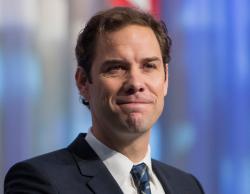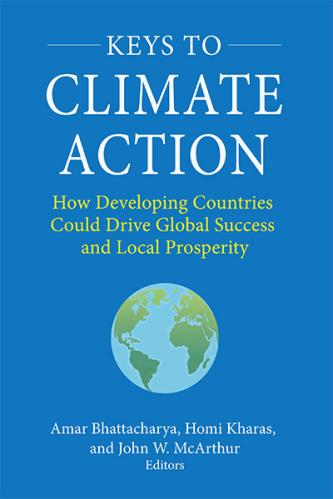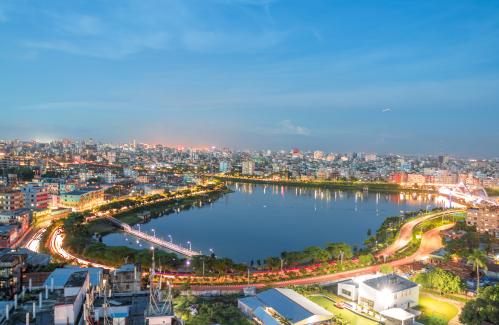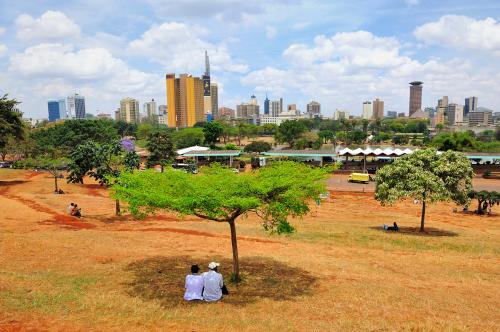These essays were published in the edited volume “Keys to Climate Action: How Developing Countries Could Drive Global Success and Local Prosperity.”
A new narrative needs to capture the interwoven nature of the world’s climate and economic development challenges, anchored in the evolving and diverse perspectives of developing countries themselves.
An updated portrayal begins with the stark reality of climate change’s devastating consequences already hindering economic development around the world. It underscores the need for urgent investments in adaptation, resilience, and nature to avoid development setbacks while paying heed to the world’s narrow window for climate action. It requires empathy for many developing countries’ profound energy conundrum: a tension between the need to expand access for people who need it most while facing pressures to pursue low-carbon opportunities, often in the face of local political and financing headwinds. It implies practical urgency in tackling the broken threads of the international financing system for climate and development.
To set a more robust global path to net-zero emissions by 2050, the world needs to pay greater attention to the needs of emerging markets and developing economies (EMDEs), even when holding aside the special case of China. Over the coming several decades, no part of the world will play a greater role in both experiencing and affecting global climate change outcomes than EMDEs themselves. They need greater international support to tackle growth-enhancing sustainable development strategies.
With their growing leverage, developing countries have new opportunities to lean forward with a unified “ask” in global climate and development negotiations. The broader prize and aspiration amount to a full-fledged re-conception of models for sustainable development and of international cooperation. Falling short by losing sight of the big picture or wrangling excessively over details will dim the prospects for prosperity around the world. Rising to the occasion, however, can help usher in a new era of prosperity for all.
This edited volume brings together a cross section of distinguished academics and leading policy voices from a variety of developing country geographies and contexts. First, it presents perspectives on the local climate and development challenges and opportunities in Bangladesh, Egypt, India, Indonesia, Nigeria, and South Africa. Then, broader case studies focus on issues spanning East Africa, the African continent as a whole, Latin America and the Caribbean, and the Vulnerable Twenty (V20) Group of Ministers of Finance of the Climate Vulnerable Forum. The volume concludes with a chapter focused on systemic issues in financing development and climate-driven prosperity.
Chapters and Contributors
The Brookings Institution is committed to quality, independence, and impact.
We are supported by a diverse array of funders. In line with our values and policies, each Brookings publication represents the sole views of its author(s).










